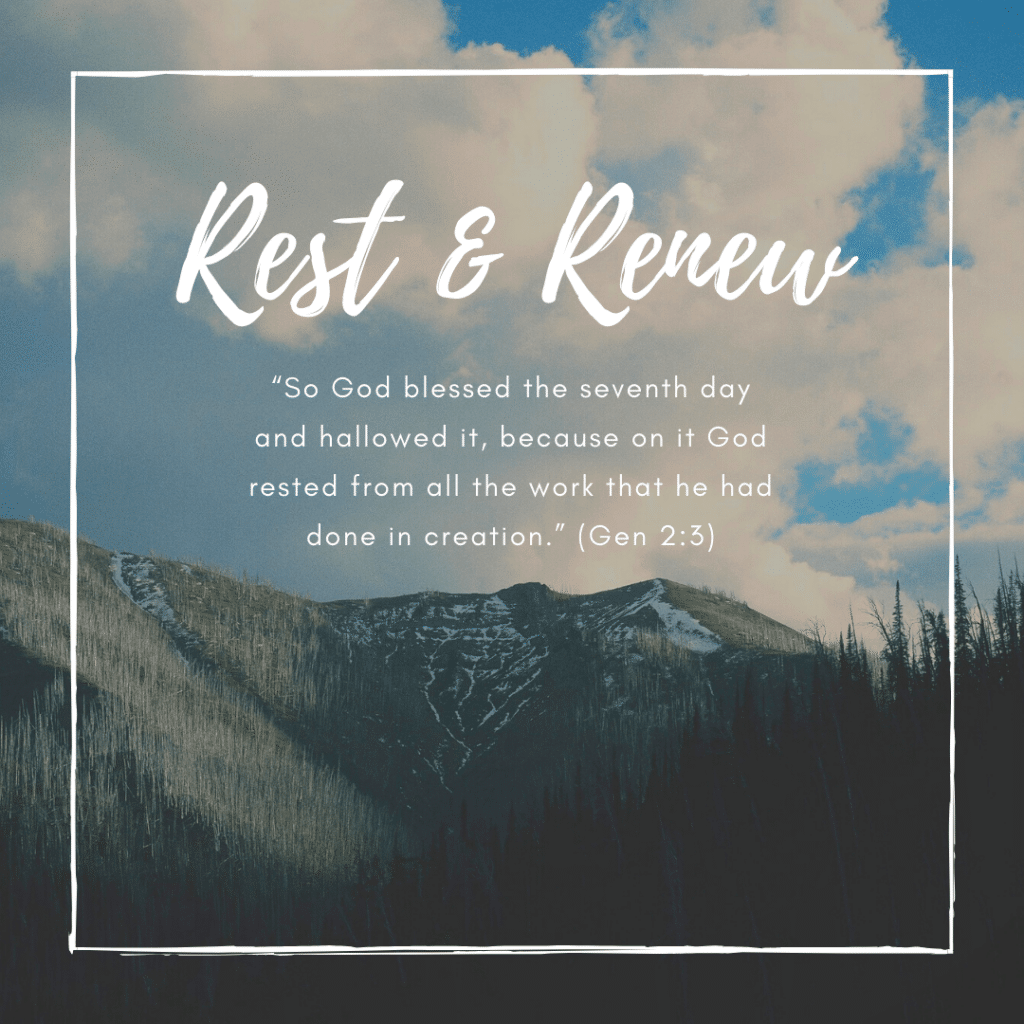Today’s Author: Carol Swanson
The last few weeks of summer we have been celebrating beloved Bible stories with the theme “I Love to Tell the Story.” The first creation story of Genesis has long been one of my favorites.
Some three thousand years ago, the Hebrew people were wandering nomads who were called by Yahweh, who became their tribal god. Surrounding cultures believed in other gods and had their own stories of Origin and their own traditions, which the Hebrew people were aware of. It took centuries and Exile for them to make the leap to understand Yahweh was the Creator God of the whole world. And they reinterpreted the origin stories that surrounded them—like the Gilgamesh Epic that was reworked theologically as Noah’s Flood story.
“In Babylonian mythology the origin of the three-storied universe [water above, water below, land between] was traced to a fierce struggle between divine powers that emerged from uncreated chaos—Marduk the god of order and Tiamat the goddess of chaos” (from “Creation” in The Interpreter’s Dictionary of the Bible). We don’t know how exactly God inspired the writer of Genesis 1 to reinterpret Babylonian mythology. Was it a sudden enlightenment or a long process leading to realization? Was it one “writer” or a several in conversation? However inspired, the writer wrote the amazing Hymn of Creation that we now have. In the opening 2 verses in Hebrew, God is masculine, and The Spirit of God is feminine. God creates order out of chaos, the deep. God creates a living world, a multitude of creaturely beings (including us) interconnected, and God saw that it was very good.

The Creation Hymn ends with “So God blessed the seventh day and hallowed it, because on it God rested from all the work that he had done in creation.” (Gen 2:3) A few years ago I was studying “Sabbath” because of its importance as a day of rest and renewal, celebrating our relationship with God and with family and friends. When I turned to “Sabbath” in The Interpreter’s Dictionary of the Bible, I was amazed at what I found! Again, over the early centuries of the Hebrew journey with God, they had been inspired to turn the original concept upside down.
The ancient cultures surrounding the Hebrew nomads had made a calendar with 7–day weeks and agrarian festivals, which the Hebrew people also began to follow as they became more settled with farming and villages. However, the original meaning of “Sabbath” was not rest, but “to cease, to abstain, to desist from…” The surrounding people observed the sabbath “as a day upon which all physical labor was taboo, probably because it was regarded as an unlucky, an evil day, under the control of gods or spirits hostile to mankind.” Working in the fields would bring spirits of mischief and evil. Really? So the Hebrews again began to reinterpret the Sabbath. It’s not evil, but a wonderful gift from God to rest and renew relationships, to joyfully worship God together.
Let us pray: Gracious God, Holy Spirit, continue to inspire us. Amen.
Breathe on me, breath of God;
Fill me with life anew,
That I may love all that you love
And do what you would do.
(Hymn #488, “green” Lutheran Book of Worship)
“Mid-week devotions are authored by members of our community. If you are interested in creating a trio of reflections to be shared on an upcoming Tuesday, Wednesday, and Thursday contact Pastor Peter.“
